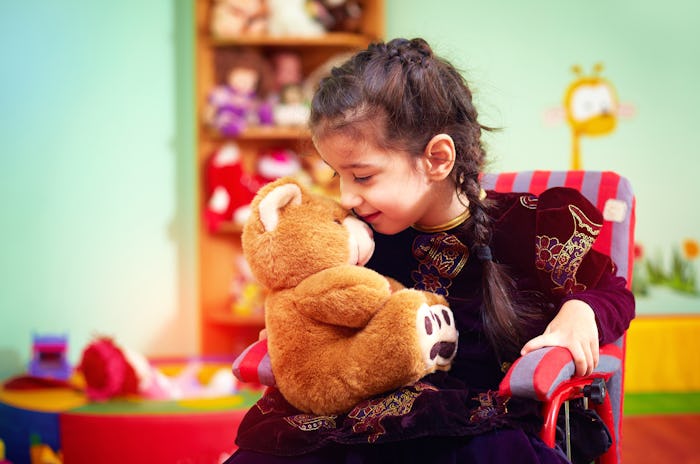Life

Why I Call My Daughter Autistic
There's a common practice of centering the person, rather than a condition or identity developed, to avoid dehumanizing someone. For example, we say "person with bipolar disorder" rather than "bipolar person". However, as this practice relates to Autism Spectrum Disorders (ASD), the more autistics became represented in the greater national conversation about ASD the more we all began to realize how person-centered language was problematic. That's one of the reasons I use identity-first language for my autistic daughter.
There are a lot of different feelings, most of them B-I-G feelings, about the usage of person-first versus identity-first language for autistic people. All of them seem to want the same thing: for autistic people to be treated with dignity, respect, and acknowledgement that they are inextricable from ASD. So while I will never judge somebody else's decision to use (or not use) the identity-first language I've decided to use it. However, it is very important to me to respect my child's individual autonomy and unique brilliance. These things are a part of her just as much as autism is a part of her. So, I've found that using identity-first language empowers my daughter, Lily, to own her entire self unashamedly.
I do not attribute everything in her personality to the condition, but I am also aware that Lily is inextricable from autism, just as I am inextricable from my allistic (non-autistic) brain. Autism (and allism, for that matter) is pervasive. It is not a disease to be cured or a slew of symptoms to be medicated away. Autism is a part of the way my child's (and my autistic partner's) brain and body. This means that the way they think, perceive bodily sensations, experience emotions, and interpret sensory stimulation are developed in complete symbiosis with autism. Yes, autism is on a spectrum and just like all allistics don't show up in or think the same way, neither do autistic people.
It's important to acknowledge that this is only my experience, and it is not meant to speak for anyone else. In relationships with other people, we should each respect the way the individual we're interacting with identifies. Having said that, here are the reasons why I use identity-first language for my autistic daughter.
Because It Empowers Her
I know she will need extra support to thrive in an allistic world. Not because she is disabled, per se, but because she is quite literally differently abled. It is not despite ASD that she is incredible, and I'm definitely anti-perpetuating the myth of autistic savants. However, it is true that Lily's being autistic is a part of what makes her incredible. After all, she is inseparable from ASD. Her self is autistic, and her self is amazing.
As her mother, I empower her to own that.
Because I Want To Raise Awareness
Raising awareness about ASD is not just puzzle pieces and patronizing "let's speak for them" campaigns. I am a partner and a mother to two autistic people. I see my primary duty in both those roles as helping allistic people adapt to autistic needs. Raising awareness that their brains aren't diseased or damaged, just different than non-autistic brains, is paramount.
As a society, we tend to expect neurodiverse people to adapt to a neurotypical culture. This is evident in the behavioral therapies that seek to minimize the appearance and behaviors of ASD.
There is absolutely a place for these things. My child, for instance, uses many services to help her thrive in an allistic world. However, I can't help think how much more interesting our world would be if everyone fit within one culture just as they are. That means we would not just expect autistic people to adjust, but we'd also expect allistic people to adjust to the way autistic brains see things.
Because I Want To Change The Conversation
There is traditionally a lot of noise about how challenging it is to have an autistic child and, yes, it can be challenging. However, do we talk about how challenging it is for autistic children to have allistic parents? How it must feel so isolating and invalidating to have a parent constantly not understand or be able to attune to you?
Maybe it would be better to talk about the challenges of inter-neurodiversity within a family.
Because I Want To Repair Relationships
I am an allistic for whom two primary relationships are with autistic people: my partner and my eldest child. It's important for me to know when to advocate for my loved ones and know when to STFU/STFD when they want to speak for themselves. I mess up all the time. Using identity-first language, and teaching others to do the same, is one of the ways I apologize for my faux pas.
Because Autistic People Tell Us To
Ultimately, none of my reasons for using identity-first language matter as much as this one. The Autistic Self-Advocacy Network tells us to use identity-first language. I will never presume to know more about ASD than autistic people. So I will defer to them in how they prefer to be referred to.